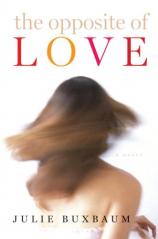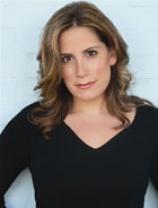Reading Group Guide
Discussion Questions
The Opposite of Love

1. What was your perception of the letter at the beginning of the novel? Did this future glimpse of Emily in the years after the story takes place influence your reading experience, or how you related to the character, as her past unfolded? Did knowing the outcome affect your judgment of her actions?
2. What is Jess referring to when she tells Emily, “It’s like you get pleasure out of breaking your own heart?” (page 46) Is she referring only to the breakup with Andrew? What else in Emily’s past or present could this apply to?
3. “This is who I am: someone who simultaneously longs for and fears the commitment of remembering.” (page 3) How is memory a commitment? Do memories make you the person you are? Are they something you can regulate?
4. Why doesn’t Emily report Carl’s lewd inappropriateness in the Arkansas hotel room, or any of his other advances? What would you have done if put in Emily’s situation? Do you think the portrayal of Emily’s experience working in a law firm is realistic --- that sexual harassment cases like this still exist? And, if so, do they often go unreported?
5. Did you expect Andrew to take Emily back? Do you think she deserves him? Is he too perfect, or does he have chinks in his armor?
6. For part of her story, Emily is a workaholic, commitment-phobic, tough lawyer who compartmentalizes her emotions. Is that a description that is often applied to young women today, or it more associated with male behavior? Is it more unusual to see a woman behave this way than a man?
7. How do the women in Emily’s life --- Jess, Kate, Ruth, Dr. Lerner, Carisse, Miranda Washington, even Marge, the security guard --- affect Emily over the course of the novel? What does each unique woman bring to her? In which ways do they ultimately help her, knowingly or unknowingly? Do you think they can be seen as maternal, in their own ways?
8. The death of Emily’s mother was an extremely profound event in Emily’s childhood and greatly influenced her personality as an adult. How did she process her grief at that time, and what were the lasting effects? Did you empathize with her father and the distance he created in their relationship, or do you find fault with his actions?
9. What was your impression of the men in this novel --- from Mason to Carl, Andrew to Grandpa Jack --- did they break or perpetuate stereotypes? If so, how?
10. Do you share Emily’s belief that the only unconditional love is from a parent to a child? Reflecting on her mother’s death, Emily surmised that she would have to spend the rest of her life earning someone else’s love. Do you think love is often idealized as unwavering and a given, yet the reality is it that it cannot be taken for granted and involves effort to cultivate?
11. How effective are the e-mail notes throughout the book? Have e-mails become our own form of letter writing? Do they hold the same value as a handwritten note? Do you think different generations of readers would give the same answer to this question? Compare Ruth’s e-mail writing style with Emily or Andrew’s.
12. Describe some of the small acts of kindness different characters bestow upon Emily. Are they usually given by family members, acquaintances, strangers?
13. What role does absence play in the novel? For instance, Emily is disappointed when Robert, her doorman, isn’t there when she comes home on Christmas Eve --- she misses him, and his kindness, which she usually takes for granted. How could this concept be applied to her relationship with Grandpa Jack, her parents, or even to Andrew?
14. Is Emily mature or immature for her age? Does your opinion change as the novel progresses? How do you define maturity? Has your definition evolved as you yourself have gotten older?
15. Emily’s concept of “the opposite of love” shifts over the course of the book. What is your concept of love’s “opposite?” Could it be defined as hate, indifference, apathy, simply the absence of love, or something else entirely?
The Opposite of Love
- Publication Date: January 29, 2008
- Genres: Fiction
- Hardcover: 320 pages
- Publisher: The Dial Press
- ISBN-10: 0385341229
- ISBN-13: 9780385341226








